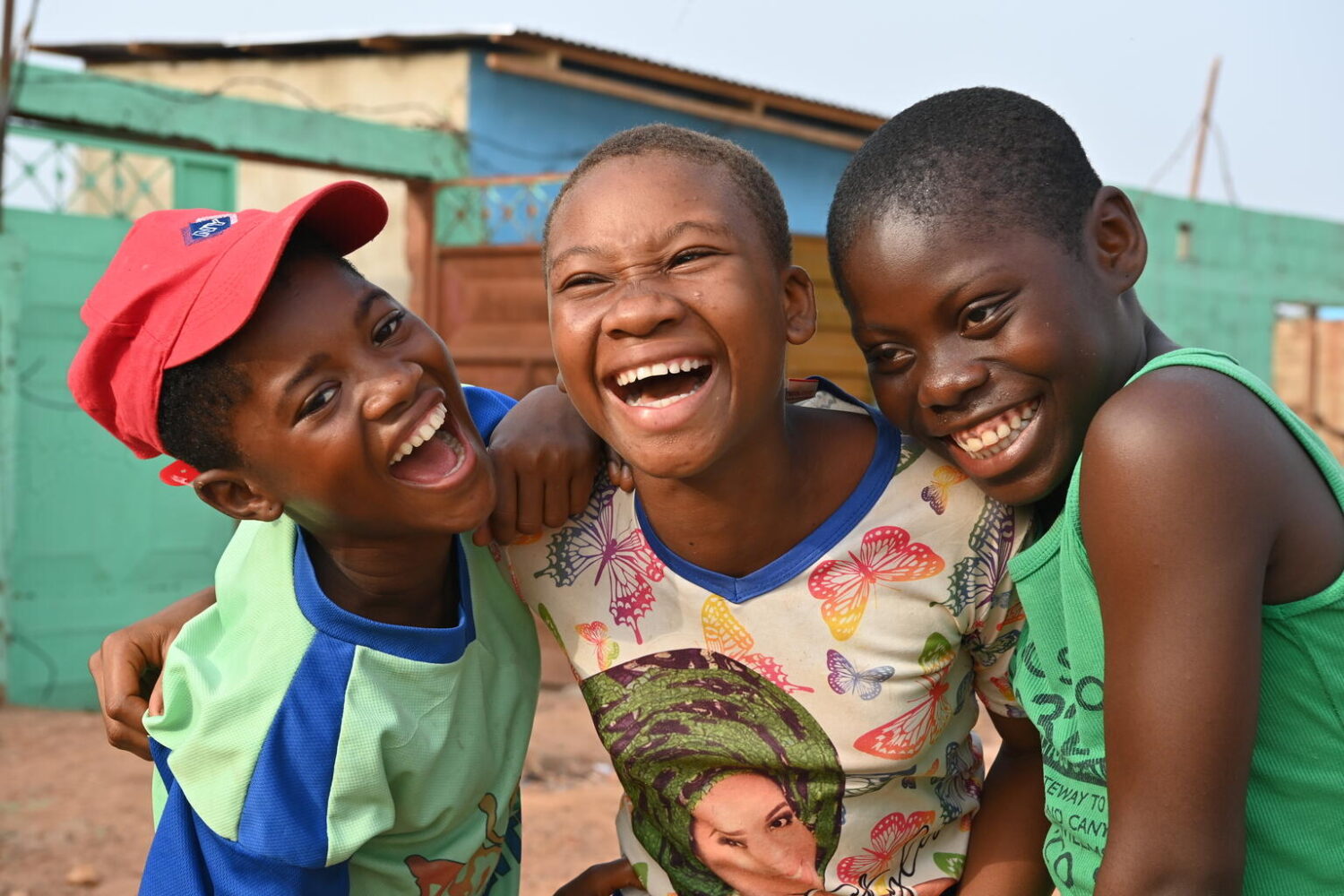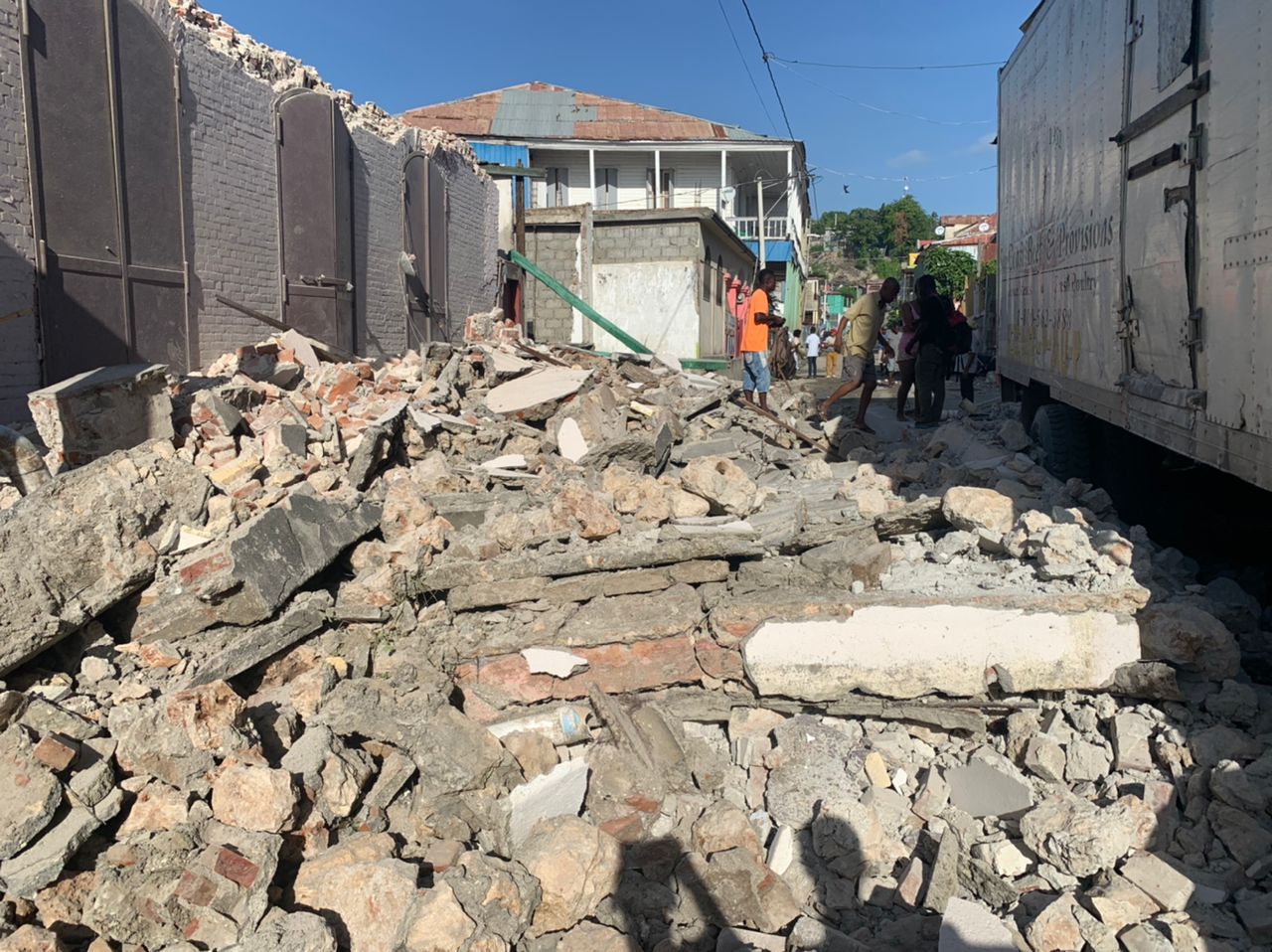
Over half a million children affected by Haiti earthquake
LONDON, 17 August 2021 – UNICEF estimates that about 1.2 million people, including 540,000 children, have been affected by the powerful earthquake that hit Haiti on Saturday.
The hardest hit departments of South, Nippes and Grand’Anse are now being drenched by Tropical Depression Grace, which is further disrupting access to water, shelter, and other basic services. Flooding and mudslides are likely to worsen the situation of vulnerable families and further complicate the humanitarian response.
Search and rescue efforts are under way, with official reports of over 1,400 deaths and 7,000 injured. More than 84,000 houses have been damaged or destroyed, along with public infrastructure, including hospitals, schools and bridges.
“Last night, I saw strong winds and heavy rainfall strike the same areas already affected by the earthquake,” said Bruno Maes, UNICEF’s Representative in Haiti, who is currently in Les Cayes. “Countless Haitian families who have lost everything due to the earthquake are now living literally with their feet in the water due to the flooding.”
“Right now, about half a million Haitian children have limited or no access to shelter, safe water, health care and nutrition,” said Maes.
Criminal violence and insecurity complicate the humanitarian response, and the main road from Port-au-Prince to the south of the country is controlled by gangs. Nevertheless, UNICEF was able reach affected areas with medical supplies within hours of the earthquake. A UNICEF truck delivered six medical kits to three hospitals in Les Cayes, with enough supplies – including gloves, painkillers, antibiotics and syringes – to treat 30,000 earthquake victims over three months.
UNICEF and partners are distributing tarpaulins for emergency shelter, latrines and showers; water reservoirs for safe water distribution; and hygiene kits including water treatment tablets, soap, menstrual hygiene material, and jerrycans.
In the courtyard of one hospital, UNICEF installed tents to shelter patients who feared the building could collapse.
Additional supplies, including education and recreational kits will be rapidly mobilized, and UNICEF is planning community-based engagement activities to prevent family separation and to ensure protection and psychosocial support for children.
UNICEF is working closely with the government and partners to carry out rapid assessments of children’s needs. UNICEF estimates that it will need US$15 million to respond to the most urgent needs of at least 385,000 people including 167,000 children under the age of five for a period of eight weeks. This initial funding requirement will be reviewed and adjusted in the coming weeks as the impact on children and families becomes clearer.
### ENDS ###
For media enquiries, contact Ceri Gautama, UNICEF UK, c[email protected]
About UNICEF
UNICEF works in some of the world’s toughest places, to reach the world’s most disadvantaged children. Across 190 countries and territories, we work for every child, everywhere, to build a better world for everyone.
The UK Committee for UNICEF (UNICEF UK) raises funds for UNICEF’s emergency and development work for children. We also promote and protect children’s rights in the UK and internationally. We are a UK charity, entirely funded by supporters.
United Kingdom Committee for UNICEF (UNICEF UK), Registered Charity No. 1072612 (England & Wales), SC043677 (Scotland).
For more information visit unicef.org.uk. Follow UNICEF UK on Twitter, LinkedIn, Facebook and YouTube.


